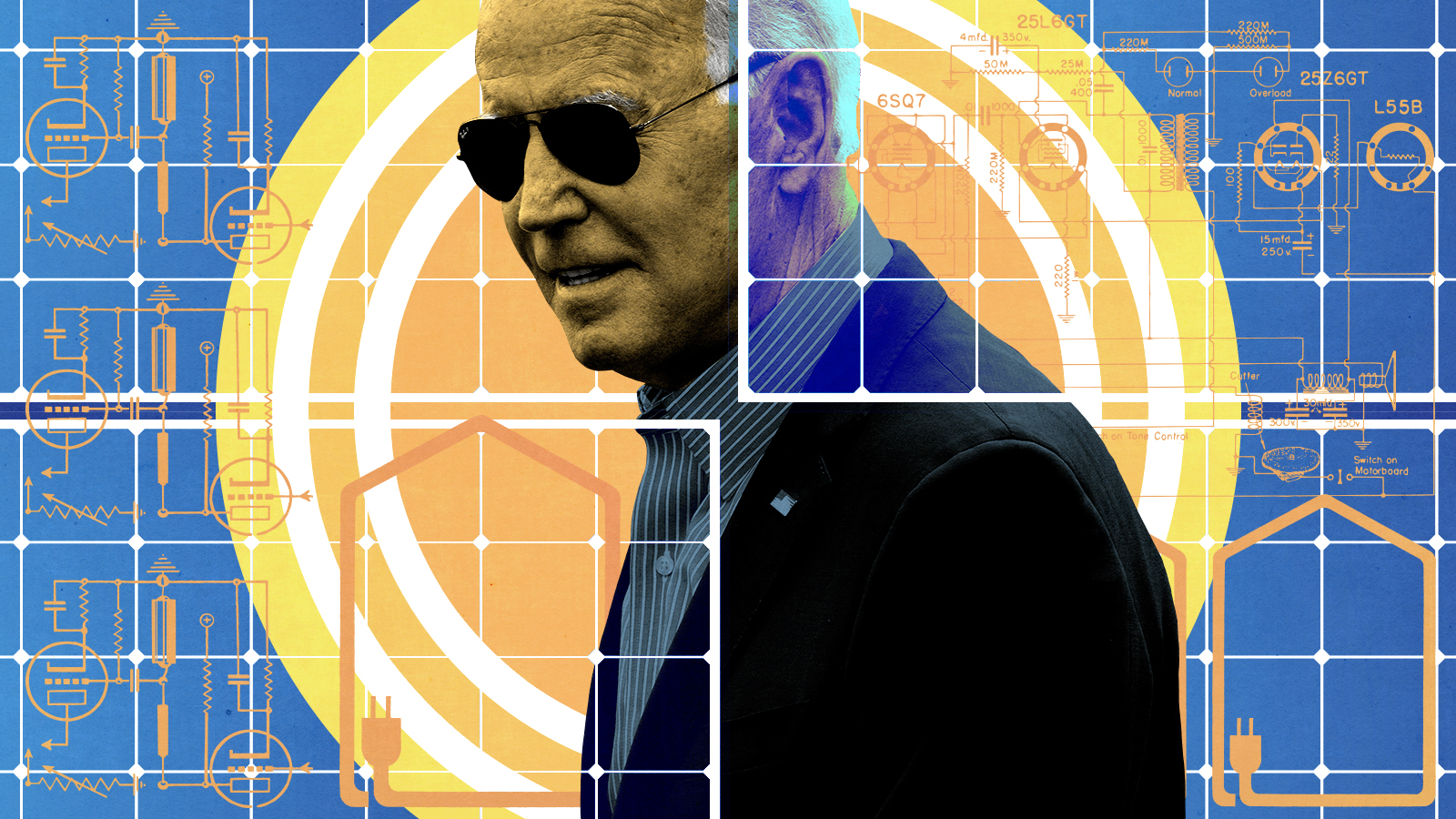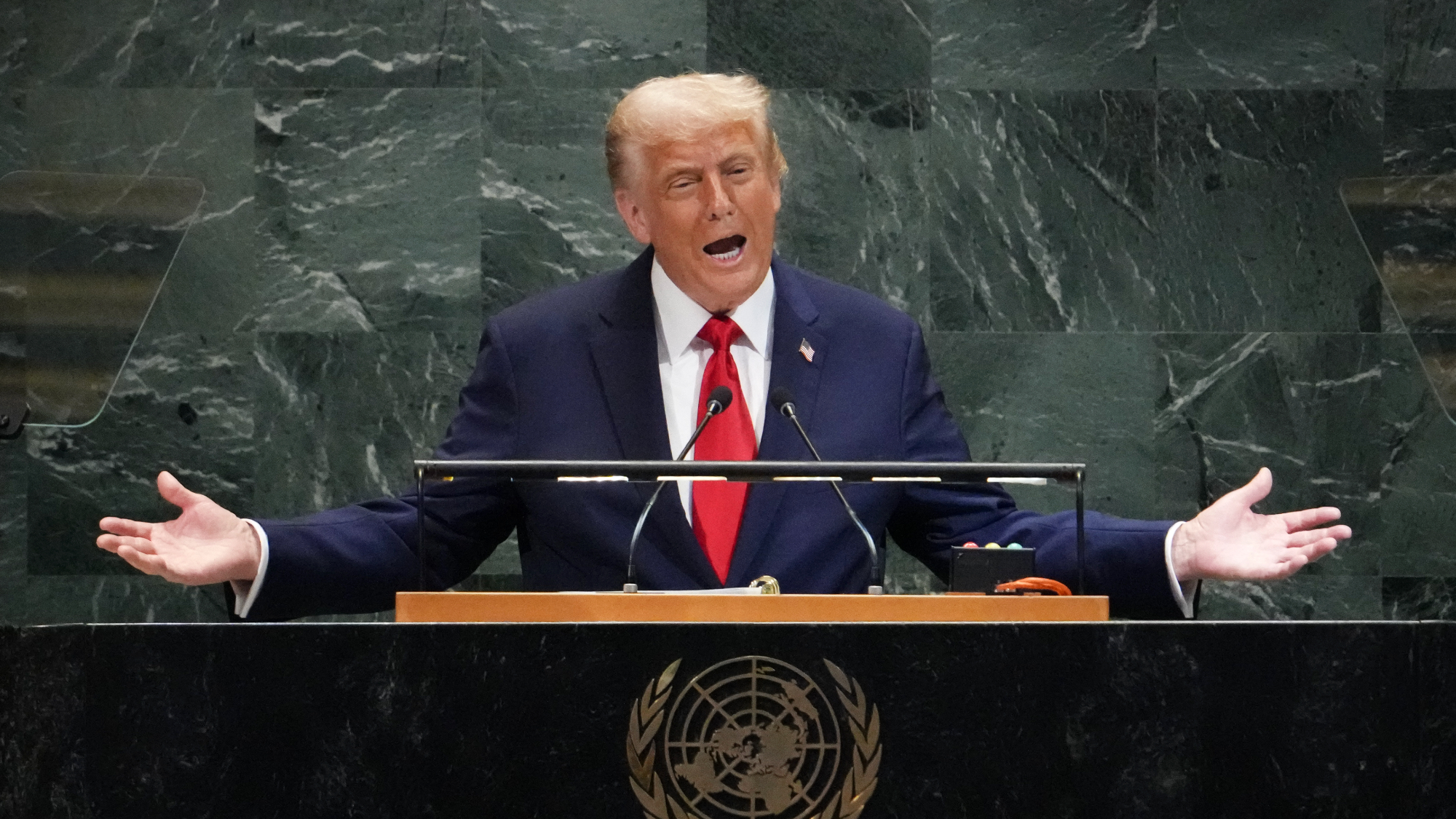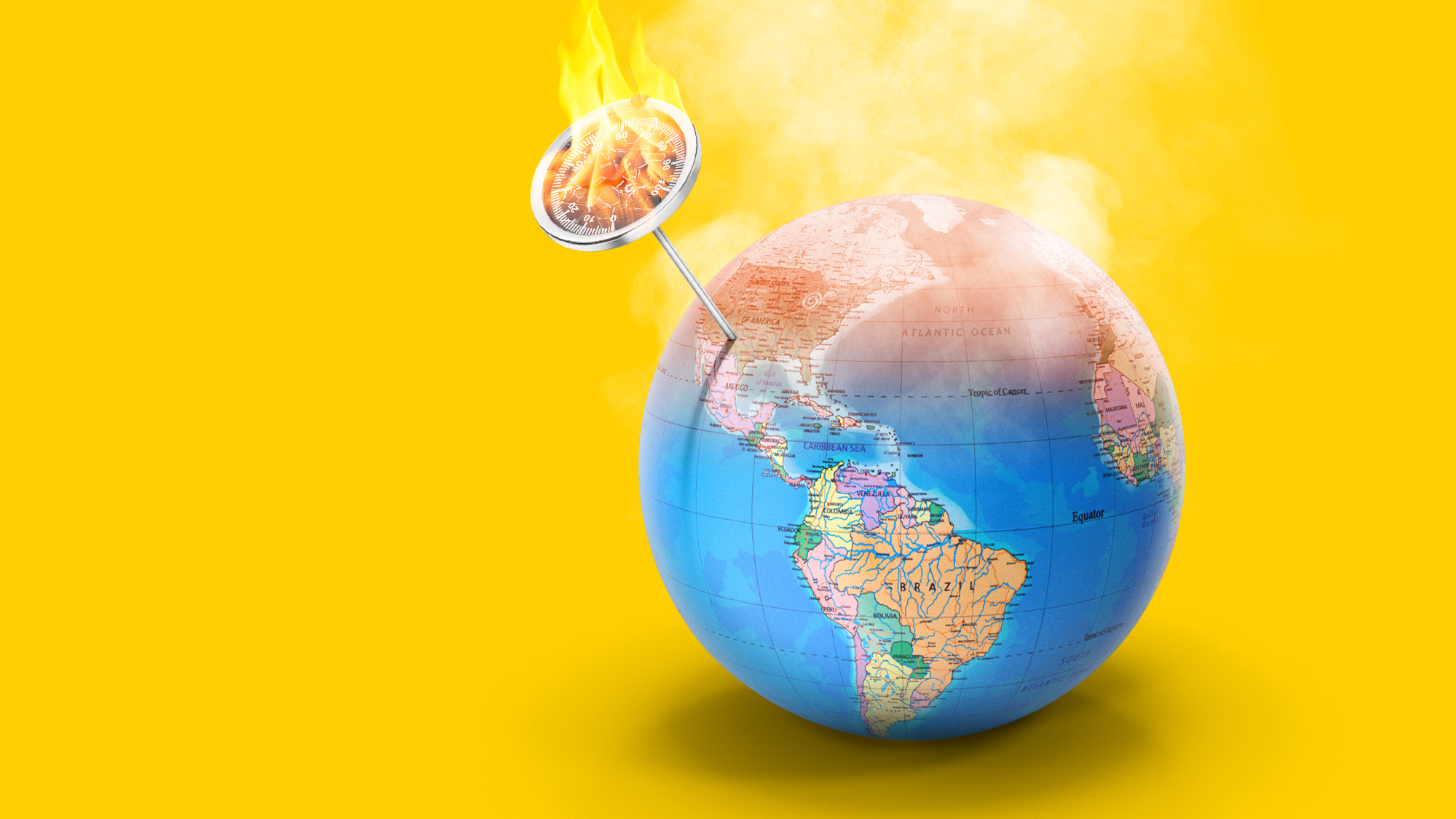The controversy over Biden's solar energy plan
The sharpest opinions on the debate from around the web


A free daily email with the biggest news stories of the day – and the best features from TheWeek.com
You are now subscribed
Your newsletter sign-up was successful
President Biden this week jump-started his climate agenda with a pair of actions designed to boost the solar energy industry in the United States. First, he invoked the Defense Production Act to ensure that American manufacturers get the materials they need to produce solar panels. Second — and more controversially — his administration announced a two-year pause on new tariffs for solar panel imports. That will allow companies in Vietnam, Malaysia, Thailand, and Cambodia to export solar energy systems to the United States without fear of paying steep fees.
Why controversial? Because the announcement disrupts a Commerce Department investigation into whether China avoided U.S. tariffs on its heavily subsidized solar industry by offshoring its companies and manufacturing to those other Southeast Asian nations. "The investigation will go on uninterrupted," reports NBC's Josh Lederman. But if violations are found, "nobody will be punished." Now U.S. solar companies are talking about bringing a lawsuit to challenge the tariff pause, arguing that disrupting a "quasi-judicial" investigation ends up helping overseas companies at the expense of domestic manufacturers. Are Biden's latest moves a necessary way to ensure the expansion of green energy, or are they a drag on U.S. industry?
Consumers will benefit. Will Democrats?
The tariff pause "is good news for consumers," says The Wall Street Journal's editorial board. Cheap solar panels are good for people looking to rely less on an electrical grid still powered largely by fossil fuels, "but they also create a political and economic paradox for Democrats." The problem? Liberals want to wean the country off of climate-polluting oil and gas, but many of the jobs created by a shift to clean energy sources "will be in countries with lower labor and energy costs." Biden used the Defense Production Act to help American manufacturers, yes, but that just proves "the energy problems created by the left's climate policies are a national emergency that demands a command-and-control solution."
The Week
Escape your echo chamber. Get the facts behind the news, plus analysis from multiple perspectives.

Sign up for The Week's Free Newsletters
From our morning news briefing to a weekly Good News Newsletter, get the best of The Week delivered directly to your inbox.
From our morning news briefing to a weekly Good News Newsletter, get the best of The Week delivered directly to your inbox.
It's necessary to fight climate change
"Rapid installation of solar power" is a "key pillar" of the climate fight, Emily A. Beagle writes at The Conversation. The U.S. needs to generate 25 gigawatts of new solar capacity every year to meet the Biden administration's climate goals, but "imposing tariffs could cause solar capacity to reach only 70 percent-80 percent of that goal." Indeed, the Commerce Department investigation was already slowing that effort, with more than 300 projects "delayed or canceled since the case was brought forward." Biden's boost to solar might help the industry, but if the U.S. is going to make a big dent in carbon emissions, responsibility "more broadly lies with Congress, which could still pass historic climate legislation."
But other American industries might be hurt
The U.S. steel industry worries that a climate-driven tariff pause will end up "making it harder for U.S. industrials to win new duties in future disputes," Joe Deaux and Jennifer A. Dlouhy report for Bloomberg. The fees at issue are a century-old tool the American government uses "to level the playing field for domestic manufacturers against imported goods that are subsidized or sold below the cost to produce them." And they have typically been invoked "based on a narrow set of criteria centered around competition, subsidies and pricing." Adding climate change to the mix could complicate the steel industry's efforts to seek federal protection from foreign competitors: "Adding climate considerations or other public-interest tests would create a slippery slope."
Energy security is national security
Biden's moves "show the White House is beginning to treat climate change and clean energy as national security issues," Neel Dhanesha writes for Vox. That's part of a trend that has "seen the definition of national security shift to encompass more than just military spending" to include things like COVID-19 treatments and baby formula. That's a good thing. Biden's DPA authorization "puts the country on the path to energy independence" and signals that such independence takes priority "even if the market would prefer cheaper imports." Biden's twinned solar announcements should allow all those delayed projects "to move forward immediately, while also giving American solar manufacturers time to ramp up production to meet the needs of future projects."
It's a compromise
Taken together, the tariff pause and DPA order amount to "a middle path between opposing camps," Julian Spector writes for Canary Media. Solar manufacturers need help to compete against foreign companies, but solar installers need affordable panels to use on projects right now. "Both sides' interests got recognition" with the two moves paired together. Yes, Biden risks sending the message that if "actually enforcing trade law causes a national supply crisis, then it won't enforce trade law." But Chinese solar tariffs have been in place for a decade "without spurring a thriving domestic supply chain." That's why Biden tried something different. "Doing more of the same won't actualize an American solar manufacturing renaissance."
A free daily email with the biggest news stories of the day – and the best features from TheWeek.com
Joel Mathis is a writer with 30 years of newspaper and online journalism experience. His work also regularly appears in National Geographic and The Kansas City Star. His awards include best online commentary at the Online News Association and (twice) at the City and Regional Magazine Association.
-
 Political cartoons for February 22
Political cartoons for February 22Cartoons Sunday’s political cartoons include Black history month, bloodsuckers, and more
-
 The mystery of flight MH370
The mystery of flight MH370The Explainer In 2014, the passenger plane vanished without trace. Twelve years on, a new operation is under way to find the wreckage of the doomed airliner
-
 5 royally funny cartoons about the former prince Andrew’s arrest
5 royally funny cartoons about the former prince Andrew’s arrestCartoons Artists take on falling from grace, kingly manners, and more
-
 ‘States that set ambitious climate targets are already feeling the tension’
‘States that set ambitious climate targets are already feeling the tension’Instant Opinion Opinion, comment and editorials of the day
-
 Trump’s EPA kills legal basis for federal climate policy
Trump’s EPA kills legal basis for federal climate policySpeed Read The government’s authority to regulate several planet-warming pollutants has been repealed
-
 Trump pulls US from key climate pact, other bodies
Trump pulls US from key climate pact, other bodiesSpeed Read The White House removed dozens of organizations from US participation
-
 The billionaires’ wealth tax: a catastrophe for California?
The billionaires’ wealth tax: a catastrophe for California?Talking Point Peter Thiel and Larry Page preparing to change state residency
-
 Bari Weiss’ ‘60 Minutes’ scandal is about more than one report
Bari Weiss’ ‘60 Minutes’ scandal is about more than one reportIN THE SPOTLIGHT By blocking an approved segment on a controversial prison holding US deportees in El Salvador, the editor-in-chief of CBS News has become the main story
-
 Trump aims to take down ‘global mothership’ of climate science
Trump aims to take down ‘global mothership’ of climate scienceIN THE SPOTLIGHT By moving to dismantle Colorado’s National Center for Atmospheric Research, the White House says it is targeting ‘climate alarmism’
-
 ‘It’s ironic in so many ways’
‘It’s ironic in so many ways’Instant Opinion Opinion, comment and editorials of the day
-
 Newsom slams Trump’s climate denial at COP30
Newsom slams Trump’s climate denial at COP30speed read Trump, who has called climate change a ‘hoax,’ declined to send any officials to this week’s summit
